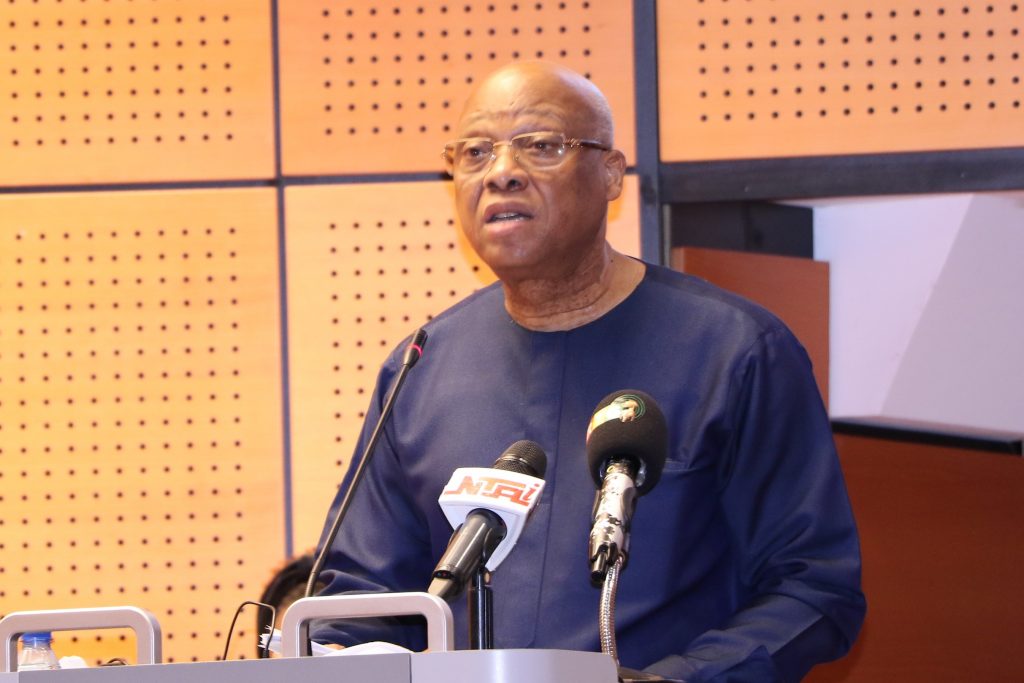Insecurity and COVID-19 take a toll on economic development and regional integration in the ECOWAS region.
The continued presence of COVID-19 and recurrent threats to the security of persons and goods in the Economic Community of West African States (ECOWAS) remain the main impediments to the region’s integration and economic development.
This is what emerged from the report on the state of the Community presented by the President of the ECOWAS Commission, Jean Claude Kassi Brou, to the ECOWAS Parliament in Abuja on Wednesday, 2 June 2021. He made this presentation in accordance with Article 32 of the Supplementary Act on the Enhancement of the Powers of Parliament, which provides that: “At each ordinary session of the ECOWAS Parliament, the President of the Commission shall present a general report on the status of implementation of the Community Work Programme”. Mr. Brou addressed the Plenary of Community Representatives with conviction that ECOWAS can “enhance regional capacity for post-COVID-19 resilience”.
Instead of being a public speaker, Jean Claude Kassi Brou rather lectured his audience that although everything is not rosy in the ECOWAS region, there is still hope for a better future.
Regarding the COVID-19 pandemic, the report presented shows that as of 30 May 2021, there were 473,074 cases in ECOWAS countries, with 6,235 deaths. In terms of security, from January to May 2021, ECOWAS Member States recorded 714 attacks with 2,089 victims mainly in Nigeria, Mali, Niger and Burkina Faso. At the end of May 2021, the United Nations High Commission for Refugees (UNHCR) reported more than 3,700,000 internally displaced persons and about 450,000 refugees in West Africa.
Although the situation is not as dire as in other parts of the world, the health and security situations are not satisfactory, especially since they have a more adverse effect on the economies and the regional integration process. Mr. Brou pointed out that these two shocks have wiped out growth, increased inflation and the budget deficit of Member States as well as their public debt. In addition, health and security threats have led to the closure of Member States’ borders, the restriction of the free movement of persons and goods, and a decline in the prices of export products.
Beside these economic problems, post-electoral tensions and the Malian crisis are among the factors affecting regional stability.
However, according to the President of the ECOWAS Commission, Member States have enough resources to recover and move forward in the integration process. The “ECOWAS Vision 2050”, which is an action plan developed following an inclusive and collaborative process of the main political and civil society actors, is currently being validated, he emphasized. This plan will be the new benchmark in the achievement of regional integration goals.



